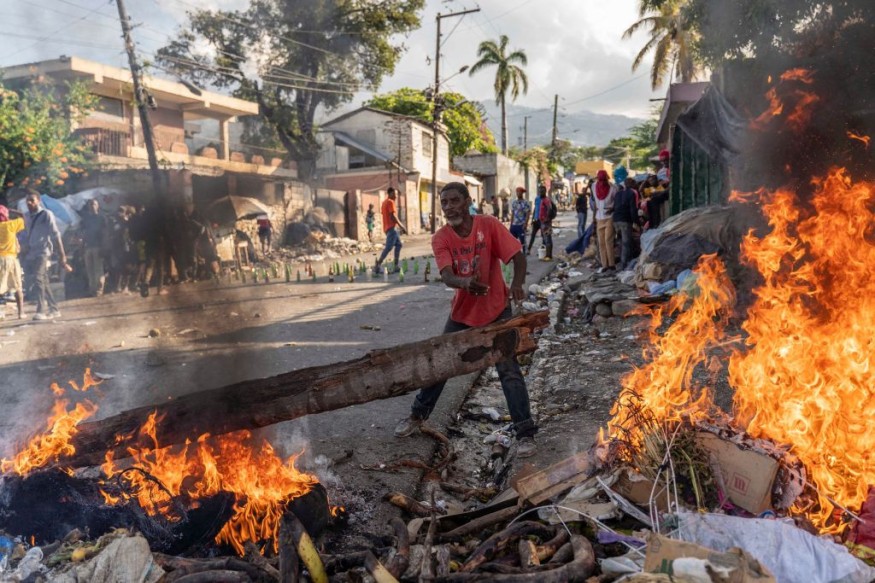Haiti Economy Appears Close to Collapse as Violence Soars, Nation at Breaking Point

Haiti's economy reportedly started to be downright dysfunctional last month after Prime Minister Ariel Henry announced that fuel subsidies would be removed, which caused prices to double.
Violence in Haiti also grew, and there were reports of gunfire as demonstrators barricaded streets with iron gates and trees. The most influential gang in Haiti then took drastic action, digging trenches to block access to the country's major petroleum terminal, and vowed not to move unless Henry resigned and prices for fuel and essential items dropped.
According to Associated Press, inflation is squeezing the poorest country in the Western hemisphere, leading to increased protests that have strained society. Hospitals, banks, and supermarkets are reportedly all struggling to stay open as fuel and clean water run short of supply.
Haiti's Economy Crashing
The president of the nearby Dominican Republic called the situation in Haiti a "low-intensity civil war." Reports noted that Haiti is a challenging, disorganized country and the paralysis and hopelessness are unprecedented.
Since last year's unsolved assassination of Haiti's president, political unrest has reportedly simmered. Moreover, the skyrocketing inflation reaching around 30%, has exacerbated the situation.
Pierre Killick Cemelus, who was trying to keep up with thousands of other protesters parading during a recent demonstration, said: "If they don't understand us, we're going to make them understand."
Gangs have blocked access to 10 million gallons of fuel and gasoline and over 800,000 gallons of kerosene since September 12. Furthermore, a lot of gas pumps are also closed or low on fuel.
Recently, hospitals were forced to reduce essential services, and water delivery companies were forced to close due to a lack of fuel. PBS reported that due to diminishing fuel supply and high costs that make it practically impossible for many people to commute, banks and food businesses are also finding it challenging to remain open.
A gallon of black-market fuel costs $30 in Port-au-Prince and $40 in rural areas. Desperate people also travel miles to obtain food and water because public transit is restricted.
Violence in Haiti Continues to Spread
"Haiti is now in complete chaos," said Alex Dupuy, a Haiti-born sociologist at Wesleyan University. "You have gangs basically doing whatever they want, wherever they want, whenever they want with complete impunity because the police force is not capable of bringing them under control."
Dupuy added that Ariel Henry's de-facto government does not appear fazed by the instability and is perhaps prospering from it. Since President Jovenel Moise was killed in July 2021, gangs in Haiti have become much more powerful than they already were.
The United Nations said that gangs run about 40% of Port-au-Prince. They are fighting for more land, and in the process, they have killed hundreds of Haitians, including women and children, and forced 20,000 to move.
There have also been more kidnappings. Henry has stated that elections will be held as soon as it is secure to do so, saying that he has "no desire to stay in power longer than necessary" in an address presented to the UN General Assembly on September 24.
Meanwhile, Dupuy said he does not think Henry will step down because there is no pressure from other countries for him to do so. As the situation got worse and worse, he was worried that there was no clear way out. "How much more boiling point can there be?" he asked.
This article is owned by Latin Post.
Written by: Bert Hoover
WATCH: Violent Protests Rock Haiti as Economic Crisis Deepens - From Al Jazeera English
Subscribe to Latin Post!
Sign up for our free newsletter for the Latest coverage!
© 2026 Latin Post. All rights reserved. Do not reproduce without permission.















